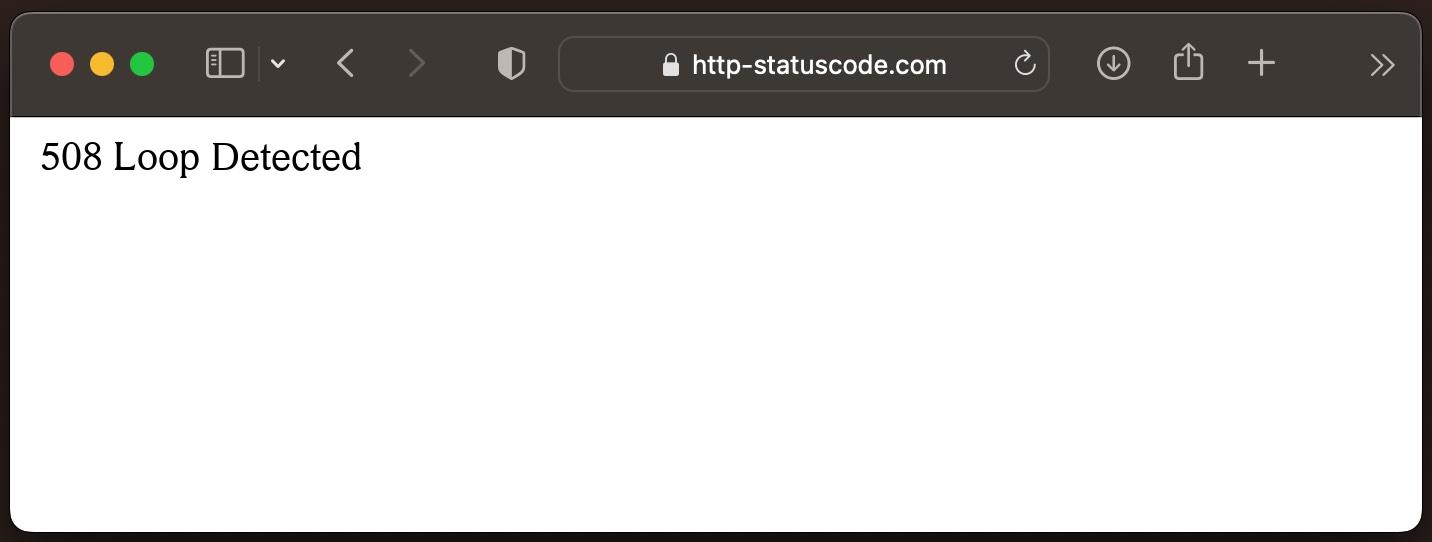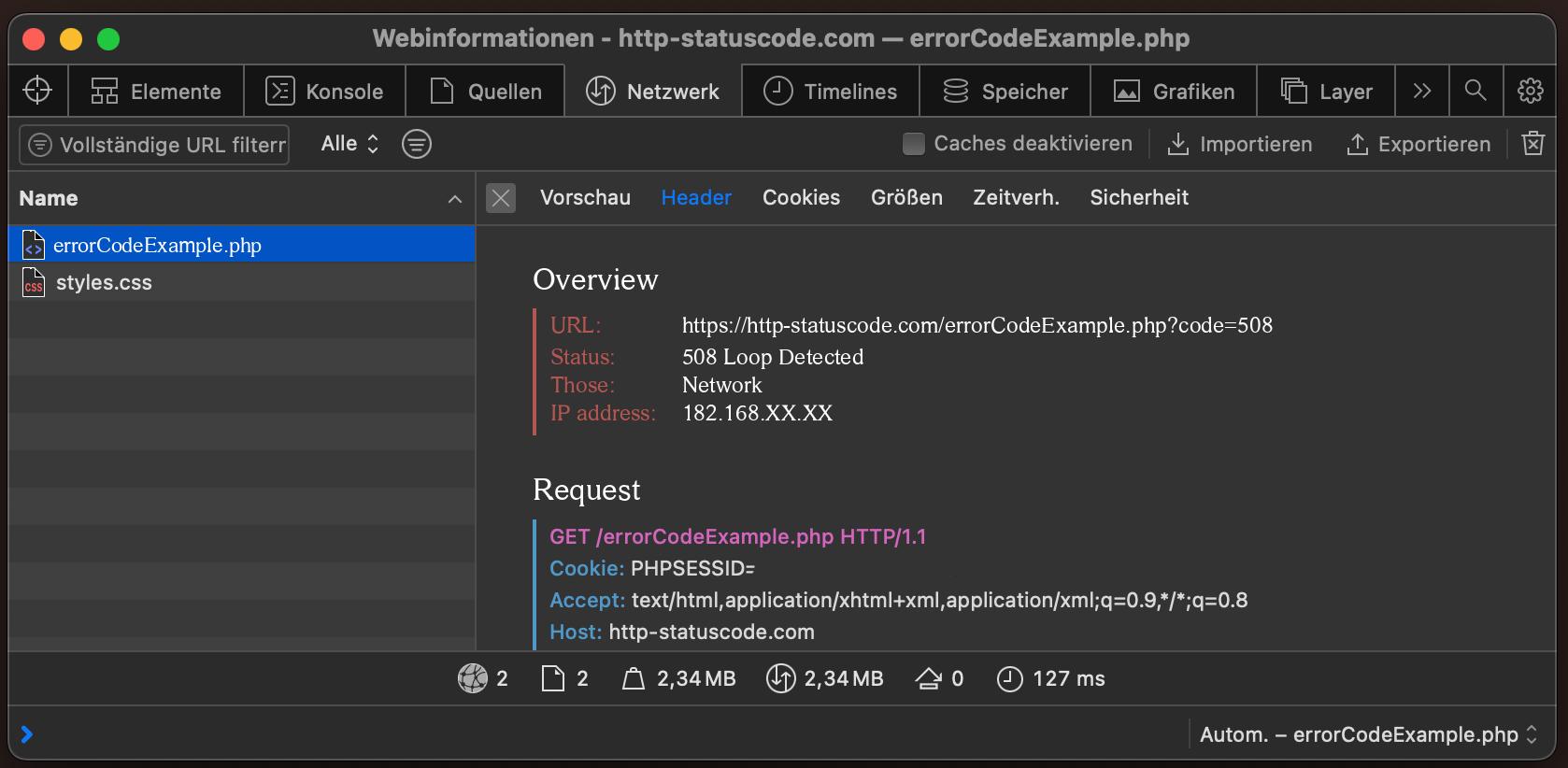Specification of the HTTP status code 508
Source / Quote by: The 508 Loop Detected HTTP Status Code is specified by section 7.2 of RFC5842.
HTTP-Protocol
How to throw a 508 statuscode with PHP?
To throw the HTTP status code 508 on a web page, the PHP function http_response_code can be used. The syntax is as follows: http_response_code(508) (PHP 5 >= 5.4.0, PHP 7, PHP 8)
Test the 508 HTTP status code
In order to be able to display the HTTP status code (in this case 508 Loop Detected) and other information on the client side, the development console must be opened with F12. Afterwards you have to navigate to the tab "Network". Now you can open the page, in the network tab you should see the web page (example index.php). This must be selected and then the Herder section must be selected. Here the user will see the following result:

URL: https://http-statuscode.com/errorCodeExample.php?code=508
Status: 508 Loop Detected
Those: Network
IP address: XX.XX.XX.XX

How do I solve the problem with the 508 status code?
The HTTP status code 508 Loop Detected is usually returned by a web server when it detects that the request would cause an infinite loop. If you receive this error, it means that there is probably a problem with the configuration of your website or the code that is being executed by your web server.
To resolve the error, you must first identify the cause of the problem. There may be an error in the .htaccess file that is causing an infinite loop, or there may be a bug in your website's code that is causing a particular request to be sent to the server over and over.
Some steps you can take to fix the error:
- Check the .htaccess file: If you are using rewrite rules in your .htaccess file, check them carefully to make sure they are not causing an infinite loop. You may need to remove or adjust some rules to fix the problem.Check your website code: Look for loops or repeated requests in your website's code that may be causing an infinite loop. Once you've identified the problem, adjust the code accordingly.
- Use debugging tools: Use debugging tools such as your browser's developer console or logging features in your web server to locate the problem. Check the output to see which requests are being sent over and over again, and identify the problem based on this information.
- Contact your hosting provider: if you are still having trouble fixing the error, contact your hosting provider or an experienced developer who can help you resolve the issue.
By checking your .htaccess file, your website's code, and using debugging tools, you should be able to identify and fix the error that is triggering HTTP status code 508 Loop Detected.
If you include the following code in your .htaccess file, exemplary The HTTP status code 508 Loop Detected will be triggered.
RewriteEngine On RewriteRule ^(.*)$ $1Please do not test in production environments!
How to create a custom error page for the 508 status code
Apache Webserver
The web server "Apache" is one of the most popular web servers on the Internet. To create an own 508 Loop Detected error page in "Apache", the following change must be made in the following file.
NGINX Webserver
Similar to the web server "Apache", "NGINX" is also widely used on the Internet. To create your own 508 Loop Detected error page in "NGINX", the following change must be made in the following file.
location = /508.html {
root /usr/share/nginx/html;
internal;
}
Browser compatibility of the 508 status code
| Chrome | Yes |
| Edge | Yes |
| Firefox | Yes |
| Opera | Yes |
| Safari | Yes |
| Chrome Android | Yes |
| Firefox for Android | Yes |
| Opera Android | Yes |
| Safari on iOS | Yes |
| Internet | Yes |
| WebView Android | Yes |
Constants in programming languages
Example of "Client request" and "Server response" for HTTP status code 508
Client request:
Host: www.example.org
Server response:
Content-Type: text/plain
Error: Infinite loop detected while processing the request for /recursive-resource.php.
